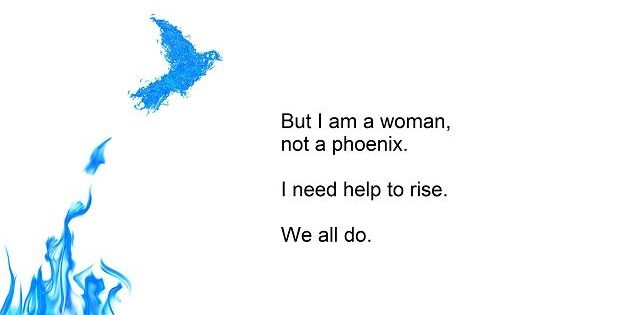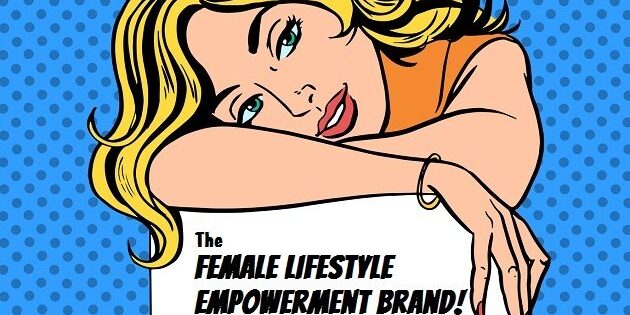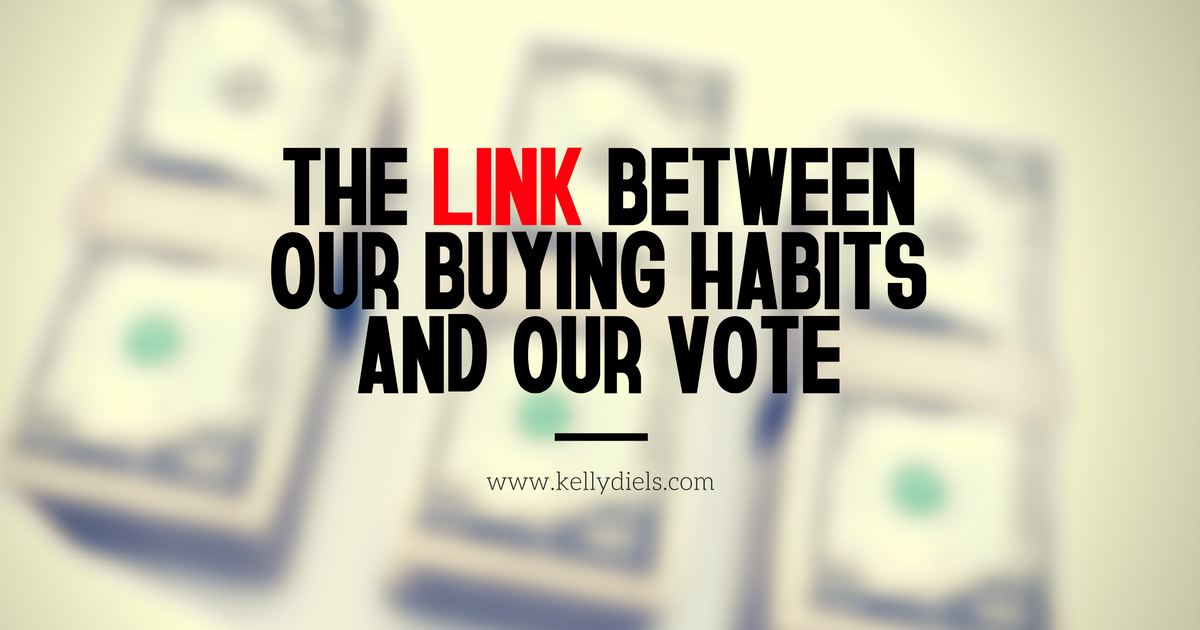
the link between our buying habits and our vote
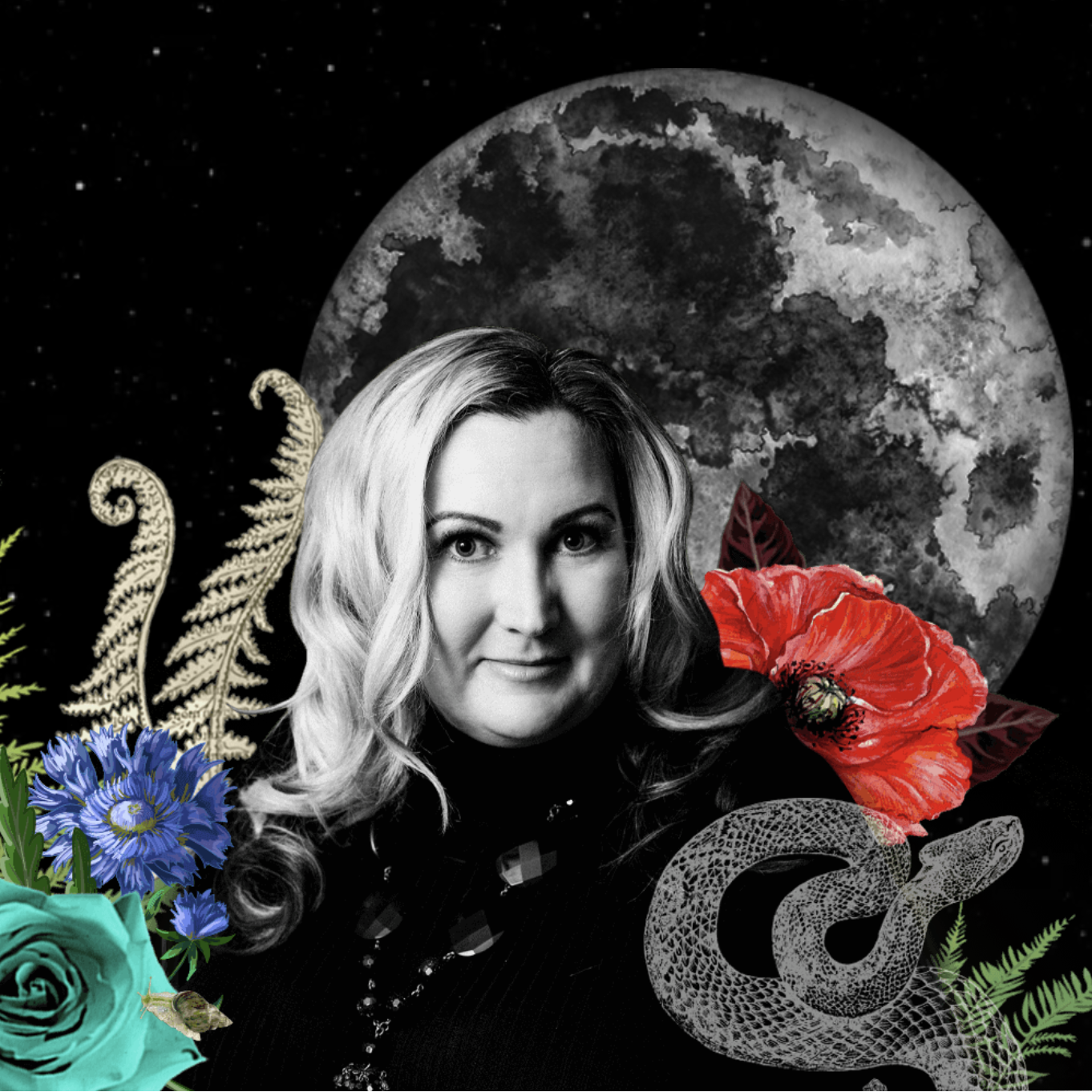
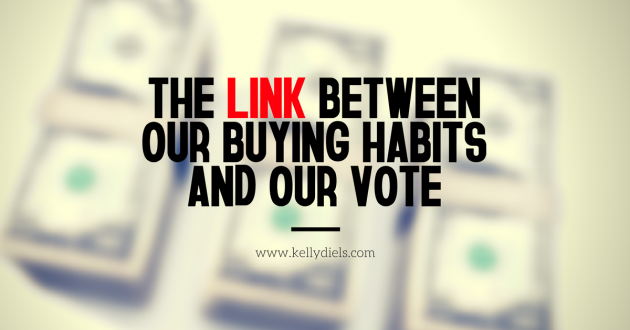
Once upon a time, when I was doing a round of shadow boxing with my inner critic, a blogging comrade + beloved champion of mine told me something that has become a touchstone for me.
He said that failing after doing your absolute best and putting in the maximum effort is good information. Knowing you did everything possible on this project or in this relationship, and it still didn’t work, tells you a lot. Strangely enough, you can actually have faith in yourself even if your efforts didn’t yield the results you intended. You don’t have to torment yourself with what if I had tried harder, what if I had done this, what if.
An example: if I write an article and I know – or suspect – it could have used a few more sources, it could have used another edit-polish and then it gets rejected, then I have questions. Was it because they don’t like my style? Voice? Am I a bad writer? Or did it need more work? Uncertainty. Torment. There’s no good information in that rejection from which to learn and make changes.
I have this uncertainty about my first marriage. I didn’t try to save it. I don’t know if it could have been saved, I don’t know if we could have grown and been better for each other, because I didn’t try. There’s not a lot of useful relationship information
Which is not to say that I made the wrong decision. It just saying that if I had tried and it still failed, at least I would have known some things for sure about myself and about relationships. I would have been free, from the inside out, to move on and choose a new path.
I still got there but it took a while. Doubt impedes recovery. Sometimes by years.
And so failure after maximum effort contains good information: this thing was not for me. I did everything, it didn’t work, I am free.
My point in all of this is that I am on Team Good Information.
And liking someone can be terrible information.
I wrote about it the danger of likeability when making buying decisions. Liking a car salesman, for example, can predict that you buy a whole bunch of options on a car – or even a car, itself – that you didn’t intend to purchase. Liking a famous, high-priced coach can mean you end up cashing in your 401K or maxing out your credit card.
This happens.
I listened to a free, recorded call with one coach who was explaining to her affiliates how to counter the objection that a potential client “can’t afford it”. She said that she’d get on a call with someone who said she couldn’t afford the program, and then the coach would ask about her finances and discover that the potential client had a 401K, or was living on a one-year buyout from her previous employer, or had a credit card with a large limit, or could borrow money from her family…
…in other words, she could afford it.
This coach and I have different understandings of the word “afford”.
To me, if you have to go into massive amounts debt or raid your retirement fund to pay for a coaching program, when you say you can’t afford it, you’re right.
Now. There are of course times when liquidating savings or incurring debt is a good decision. My beloved and I cashed in an RRSP two years ago – I think this is the Canadian version of a 401K – for a down payment on a house. There was risk in this decision, but it was actually fairly low-risk. The housing market in metro-Vancouver is wildly outpacing other investments. On paper right now we’ve made way more money on the appreciation of the home that we live in than we could have in mutual funds.
Also: thank goodness we bought two years ago because house-prices have accelerated so steeply that there’s no way could we have bought a house today.
So yes, sometimes we do incur debt – mortgage is a french word that means death + chains which sometimes feels pretty accurate – in order to invest in future returns.
But. You have to be able to parse the numbers and make a calculated decision about the risk you’re incurring – especially when it’s a high-risk decision for you.
Which means the numbers need to be available.
And when it comes to business trainings and coachings, I’m seeing coaches compare their trainings to an MBA or even a Harvard MBA.These coaches are using the institutional language and trophies (degrees) we associate with credibility and professional cachet to ask you to invest thousands and even tens of thousands of dollars into qualifications that do not provide the quality of education or social leverage that degrees from accredited institutions do. (This is a persuasion technique we need to watch for: equivalencing, association.) By using that language and social signalling, they are associating themselves with institutional recognition and social and professional returns associated with it – and they are doing it deliberately. They want you to make this comparison: well, yes, I would drop 10K on a year of university; so it makes sense to spend 10K on this “academy”.
(Those are air quotes.)
Now. IF, in addition to the invented degree , MOST STUDENTS actually emerge from the training with the skills they sought and can turn those skills into the rewards (money, success, business momentum) they invested in, then this investment arguably becomes lower-risk.
When these conditions are not met, and the sum invested requires debt or intense personal sacrifice, this is a high-risk transaction. Unless, of course, you have large amounts of disposable time and income. In that case, this is not an investment, it’s an indulgence and a hobby and I have no issue with that. You can afford to do whatever you want with your extra money.
That’s not how the entrepreneurs at the helm of these ‘institutions’ are positioning it, however.
They’re positioning it as investment.
To the coach in the recorded call I mentioned, however, having access to money intended to keep you alive in your elder years or having access to other people’s money means you CAN afford to “invest in yourself and invest in your success.”
Let’s talk about that formulation. I see it everywhere, and we-the-people are accepting it as a necessary mindset shift. We’re being trained to understand that if you’re balking at a price point, it means you don’t love yourself and you’re not ready for success.
I see this message being pounded home in weekly podcasts, videos and blogs.
Let us see this content and mind-setting for what it is: months or years of overcoming objections.
As a copywriter, for example, one of the things I’m trained to do is overcome objections. What is holding the consumer back from buying this product? How do I answer that and overcome it so that they will say yes and buy?
In sales pages, the most common place to do that is the Frequently Asked Questions (FAQ) section. We take the reasons a person has for hesitating and turn them into questions and then answer them for you.
And one of the easiest ways to do that is by introducing the idea that affordability is a mindset, not a reality. If you’re hesitating, if you think you don’t have the money for this training, that’s not reality. That’s an internal barrier you’ve erected against success. If you’ve got retirement savings or space on your credit card, you’ve got money. By failing to part with it – by failing to incur debt – you’re failing to invest in your success.
If a high-cost training program can show you hard stats on the results *most people* achieve, then they’re both making the ROI tangible and lowering the risk to you – and in cases like this, their training is starting to qualify, in my opinion, as an investment. Accredited vocational institutions, for example, often have salary surveys they can show you for their graduates. They can tell you how many people found jobs in their fields and the average length of a job search. That is good information.
What online entrepreneurs do, however, is offer testimonials and best-case results. They tell you about four of their students making bank. But they don’t offer surveys and research substantiating the results for most of the people in their classes.
If someone is counseling you to make a large investment they need to be able to demonstrate and prove the returns on that investment.
Instead, what we get from our leaders telling us their products are investments is a year of psychological priming around mindset. We’re told in videos and blog posts and newsletters that the first step towards success is being willing to invest in it.
With that, the entrepreneur is spending months and years priming us to overcome objections to buying their products.
It’s not just them. In advance of launching a new drug, for example, big pharma companies spend 18 months preparing the market.
And that’s what these blog posts and videos and advice that “you need to be willing to invest in success AKA my product” are: market prep work. Online entrepreneurs are doing the pre-work to overcome your objections by squashing them before they even arise.
This pre-work ensures that when you get on a free call with that coach offering a $20K certification program and she tells you to cash in your 401K to pay for it, her advice aligns with your new beliefs – beliefs she’s inculcated in her free blog posts and newsletters. It makes sense to you. You’ve got to invest in your success.
Yes, invest in your success – where the level of risk (high, low) is acceptable to you and where the returns (especially if you have to go into debt) are quantified, predictable or proven.
Require proof for your high-risk investments.
A testimonial is not proof.
Highlights of best-case scenarios are not proof.
A doctorate from an unaccredited institution is not proof.
Before making high-risk decisions we need to do our research, ask questions and ask for proof. Please, let’s ask for proof.
I absolutely understand that not everyone in a training is going to rock it. When I was a teaching assistant for first year university Poli Sci, the prof gave me a bell curve graph to predict how students were likely to perform in my tutorials. General education’s proof is the bell curve. Some people will excel. A few will fail. Most will do ok.
The bell curve is the bare minimum a high-priced training should deliver. It should probably do better than that. When I was a student in the honours Poli Sci program, for example, there was no bell curve. Everyone was expected to get As or, if they were wildly under-performing, Bs.
And here’s my prediction: if a training program is producing the bell curve or better then its founders would be flaunting those graphs and employment documentation and salary surveys everywhere, the way they do with testimonials and case studies.
Why are we not asking for the documentation? Why are we hesitating to do our research? Why are we not asking questions? Why are we not requiring more from coaches and our women leaders asking us to buy high-risk investments?
We would ask for more from a financial advisor. We would carefully assess at the historical returns of a mutual fund. We would calculate the monthly payments and interest on a mortgage against rent and resale.
I believe we’re not holding our big-name/big-ticket coaches and leaders to this standard because we like them.
Because they’re rich, famous and authorities. Who are we to say anything? They know what to do to get that stuff and so we should do what they tell us to do.
But liking can be terrible information. Feelings are cues, not codes. When I’m feeling angry with my beloved, that feeling doesn’t hold every piece of information I need to make a good decision. It’s simply a cue to reflect and investigate. What’s going on? What’s the history here? Is this even about him or his actions? What actions would resolve this situation? What actions would be ruinous?
I tend to resist the exhortation to “feel into it”. I feel something and then think into it. I honour the feeling by following it up with analysis and action.
Sometimes the analysis and action mean I dissolve the feeling. Sometimes it means I keep the feeling. I’m legitimately angry about systemic oppression. The combination of feelings+analysis+action is rocket fuel both personally and politically.
I’m digressing a little. My point is that when it comes to our online leaders, we are often using likeability to feel into high-risk decisions. We’re deciding based on the feeling of affinity, and that’s what compliance professionals (sales people, marketers, parents, politicians) explicitly try to trigger and leverage. We design situations so that people will like us and so that people will do what *we* want because they like us.
There’s no guarantee that the action triggered by the likeability we manufactured is in their interests.
So when you like someone and you’re considering a high-risk transaction with them, slow down. Ask questions. Ask for proof. Look for it yourself.
If the person gets uppity and dismissive or aggressive with you, that’s good information. (Go, Team Good Information!) It reveals their agenda and their regard for you and your well-being.
No one who cares about your outcomes dismisses your concerns about those outcomes.
The other reason we don’t ask for more information and documentation is authority.
We’re accepting people as authorities – and what we’re accepting as authority are the signals that come with authority. We’re conflating the signals of authority – fame, wealth, influence, followings – with substantive leadership. We accept those cues as authority and then obey or concede to that authority.
Obviously, making un-analyzed decisions mandated (triggered) by the authorities in our lives can harm us in our personal lives and finances.
Just ask former cult members.
Or people who’ve dropped $20K on a failed investment or gone into debt to buy business coaching that did not produce a business.
Or citizens of fascist governments.
The personal can be very, very political.
When we are in the habit of making high-risk personal decisions based on liking someone or obeying the signals of authority, this may end up forming our decision-making
An X on a ballot doesn’t seem nearly as weighty as a decision to sign your name to a document obliging you to go into tens of thousands of dollars of debt – and if we’re accustomed to making high-risk financial decisions based on triggered behaviors and feelings rather than analysis and factual information, why would we do it differently when it’s time to select candidates and vote?
You know how I said entrepreneurs and online marketers are doing the market-readiness work to overcome your objections a year before they launch a product?
This kind of marketing – designed around triggering particular behaviours, fostering likeability to lower buying inhibitions and manufacturing authority to increase consumer obedience – prepares the consumer-citizen to make irrational political decisions.
When we as marketers do this, we are voluntarily doing ‘market readiness’ prep-work on behalf of potentially dangerous leaders. We get our customers and fellow citizens in the habit of making decisions based on feelings rather than facts.
Which is why facts have become irrelevant in political campaigns and leaders can outright lie to people and cite lies as facts without damaging their authority with their followers.
And when we use the symbols of authority as a stand-in for substantive leadership, then people who flaunt those symbols become de-facto authorities to the people who want to possess those attributes.
Which is why the US now has Donald Trump as a Republican candidate for president. He uses the tools of persuasion to make demoralized people feel like he understands them and speaks for them. He doesn’t offer concrete policies or plans or proof. He offers affinity. They like him. He models wealth and white male privilege and reality-TV fame and that makes him an authority, so they listen to him. He’s got what they want and he never has to apologize, which is what the American Dream promised and did not deliver them, and so not only do they adore him but they do not question him. Some obey even his implicit marching orders. He tells them he’ll pay their lawyer fees and so they physically assault a young black woman who dares to protest at his rally.
I say they but they are us.
We-the-marketers have helped train our people to like and obey and make decisions based on triggers and feelings rather than facts and analysis.
We-the-people have developed the habit of making decisions, even high-risk ones, based on likeability and authority rather than facts and analysis.
We are all complicit. We are all in the water so we are all wet.
This is THE reason I’m on fire about equipping people – us – with the lenses and tools to discern whether a marketer or leader deserves our attention, followship and money.
This is why I’m not a huge fan of the phenomena of The Female Lifestyle Empowerment Brand.
This is why I’m insisting we need to change our marketing practices.
Because our personal buying habits can work against our own interests and predict our political decisions, which if we select authoritarian and dangerous leaders, might also work against our collective interest and safety.
We need to interrupt and change our decision-making habits. We need to know the tools of persuasion (authority, likeability, scarcity, reciprocity etc) so we can recognize when they are being used against us. We need to acknowledge and accept that even when we like people they might not be good leaders or even good for us. We need to require more information and facts when we are making high-risk decisions. We need to ask questions. We need to tell the truth about our experiences. We need to stop doing the market prep-work for dangerous leaders. We need to see beyond the world-changing be-the-change rhetoric and “empowertising” (omg, thank you Andi Zeisler) and ask ourselves: is this really good for women? Is this good for us as a collective? As a society?
We need to require more of our leaders and ourselves.
We deserve more.
And we can get it.
We.
We the people.
We decide.
#TeamGoodInformation
——-
this is an email I sent a few weeks ago as my regular Sunday Love Letter. There’s a lot of discussion about manipulation in the coaching and self-help industry right now and I thought this might help us connect-the-dots. It’s not only about our industry. As entrepreneurs, we’re training our collectively large audiences to make psychologically-triggered decisions. As consumers, we’re getting in the habit of feeling out rather than thinking through our decisions. We’re getting trained to make irrational decisions against our own self-interests – and these habits may benefit entrepreneurs who want to get rich, but a lack of good information and critical thinking could destroy our democracies.
PS the high-risk/low-risk distinction helps us figure out when we can make automatic decisions and when persuasion is useful rather than harmful. When something is low-risk, like toothpaste, you can make a quick and automatic decision based on social proof and doing so is probably valuable because it eases decision fatigue. But if a decision is potentially life-altering, persuasion and automatic decision-making is a hindrance to critical evaluation. This important distinction comes from an email conversation with Dr. Michele Mazur. She’s also written a terrific piece about how to foil persuasion and manipulation aimed at you.


